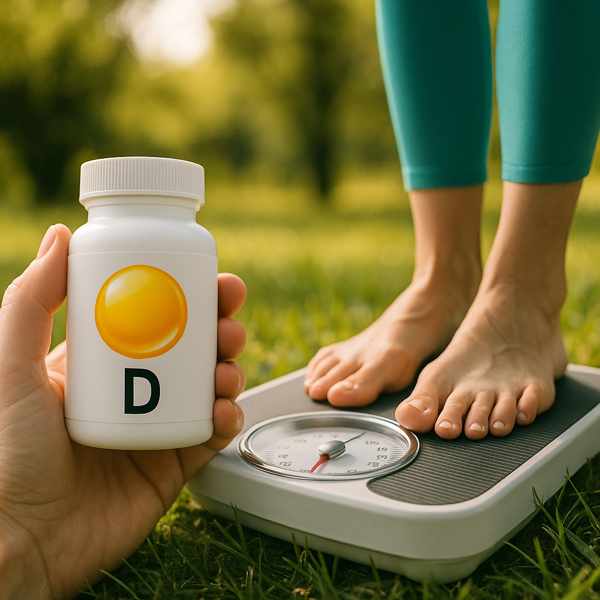
Many people ask: does vitamin D help with weight loss?
Let’s explore the science, potential benefits, and how vitamin D may — or may not — affect your weight loss journey.
Understanding the Sunshine Vitamin
It also comes from certain foods and supplements.
It helps with:
- Calcium absorption
- Immune system regulation
- Linked to serotonin and depression
- Contributes to physical performance
Does Vitamin D Affect Body Fat?
Several studies have found links between low vitamin D levels and higher body weight.
Some research suggests:
- It could help regulate how the body stores fat
- Chronic inflammation is tied to weight gain
- Helps people stay consistent with workouts
- Supports insulin sensitivity
Scientific Evidence and Limitations
- A study in 2014 found that overweight women who took vitamin D lost more fat than those who didn’t supplement.
- Another review showed vitamin D helped improve metabolic markers related to weight control.
- Some trials show no major impact on weight loss unless deficiency was corrected first.
While promising, the evidence is not yet strong enough to say vitamin D alone causes weight loss.
Who Might Benefit Most?
People most likely to benefit does vitamin d3 and k2 help with weight loss from vitamin D supplementation include:
- Those who are deficient or low in vitamin D
- Individuals with obesity or metabolic syndrome
- Improved mood can lead to better lifestyle habits
- Indoor lifestyles can contribute to deficiency
Boosting Vitamin D Levels the Right Way
Ways to get more vitamin D:
- 15–20 minutes of sun per day without sunscreen
- Include vitamin D-rich options in your diet
- Most effective form for raising blood levels
Tips:
- Too much vitamin D can be harmful
- Especially if you take other medications
- These nutrients work together for full benefits
What You Should Know
It may support fat loss indirectly, but it works best when combined with healthy habits.
For best results:
- Focus on whole foods and nutrients
- Stay active
- Get good sleep
- Reduce stress
So, Does Vitamin D Help with Weight Loss?
If you’re deficient, correcting your levels could lead to better energy, mood, and metabolic function.
As always, talk to your healthcare provider before starting new supplements.